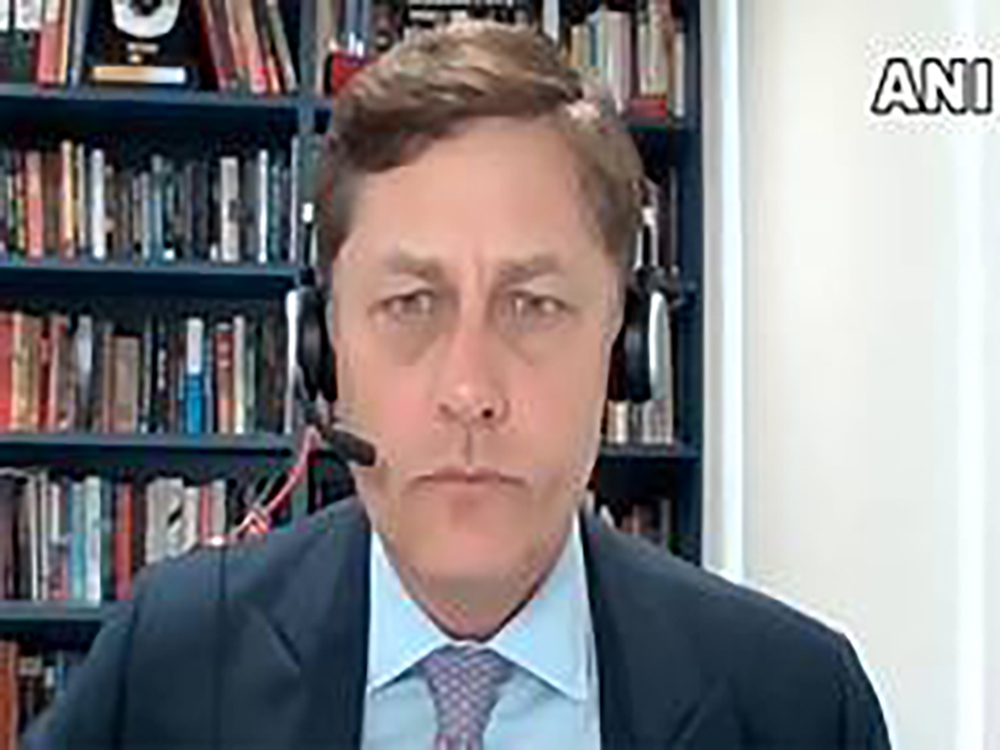London: Noting that many countries, including Western governments and Russia, talked about the need to combat terrorism in the wake of Pahalgam terror attack and statements of sympathy with India were genuine, a leading London-based security expert has said the successive US governments have been seeking to cultivate India as an important partner in the Indo-Pacific in part as a counterweight to China and conflict in the region is not in American interest.
In an interview with ANI, Dr Walter Ladwig, Senior Lecturer of International Relations at King’s College London, said India’s growth is soaring, growing at nearly seven per cent a year and the country needs to grow faster to meet all of the development targets.
“When it comes to India, we have successive US administrations going all the way back to George W. Bush that have been seeking to cultivate India as an important partner in the Indo-Pacific, in part as a counterweight to China… It’s not in the American interest for there to be a conflict between India and Pakistan insofar as that distracts india’s attention away from bigger picture issues in Asia,” he said.
“India’s growth is soaring, growing at an impressive just under seven per cent a year, but needs to grow faster to meet all of the development targets. All of those things will be put at risk by a protracted conflict or stalemate with Pakistan, so that’s clearly not in America’s interest,” he added.
He said India and Pakistan had reached an understanding for stopping military action and firing and it was “a lot about the desires of the two parties involved” and wasn’t “brought about by pressure or mediation” in the way US President Donald Trump has described.
India carried out precision strikes through Operation Sindoor early on May 7 on terror infrastructure in Pakistan and PoJK in response to the Pahalgam terror attack.
India also effectively responded to subsequent Pakistani aggression and pounded its airbases.
India carried out surgical strikes in 2016 on terror launch pads across LoC and an aerial attack on a terror camp in Pakistan in 2019 in response to ghastly terror attacks.
Pahalgam terror attack last month, in which 26 people were killed, drew global condemnation.
“I think many Western governments, Russia, and even China, in the aftermath of the attack in Kashmir, all talked about the need to combat terrorism. The statements of sympathy with India, I think were genuine. You didn’t have Indian diplomats running around trying to get governments to say these things. I think the US position in particular was slightly different from the first Trump administration when in 2019 they very clearly gave a green light to New Delhi to do sort of what it needed to do after the Pulwama attack,” Dr Ladwig said.
“I wouldn’t necessarily see it as a tilt towards Pakistan or sympathy towards Pakistan, I think rather most countries kind of defaulting to their standard set of responses when there is a South Asia crisis, he said.
Dr Ladwig said that India’s growth story getting impacted is not in the US interest.
“When it comes to India, we have successive US administrations going all the way back to George W. Bush that have been seeking to cultivate India as an important partner in the Indo-Pacific, in part as a counterweight to China… It’s not in the American interest for there to be a conflict between India and Pakistan insofar as that distracts india’s attention away from bigger picture issues in Asia,” he said.
“India’s growth is soaring, growing at an impressive just under seven per cent a year, but needs to grow faster to meet all of the development targets. All of those things will be put at risk by a protracted conflict or stalemate with Pakistan, so that’s clearly not in America’s interest,” he added.
Dr Ladwig said that the evidence of Indian Air Force’s ability to precisely strike a range of targets more or less precisely was quite impressive.
